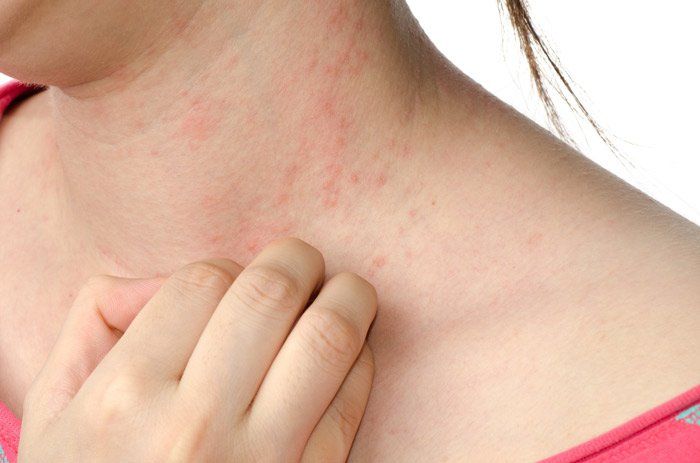A Guide to Contact Dermatitis
Admin • April 30, 2018

Contact dermatitis is a condition that is very common: nearly everyone suffers from contact dermatitis, a form of eczema, at some point in their lives. Contact dermatitis strikes when your skin is sensitive to a certain product, causing an itchy or painful rash.
A rash may occur within a short time of touching something your skin is sensitive to or can occur hours after contact. Do you have contact dermatitis? Use this guide to help you determine if you have this common skin condition or not and the treatment options that are available to you.
Does Your Skin Get Irritated When You Use a Certain Product?
Many substances can cause irritation to the skin, including certain cosmetics, perfumes, lotions, and even soaps. If you constantly break out in hives or get a painful, itchy rash when you touch a certain object or wear a certain type of lotion, then you may suffer from contact dermatitis.
In addition, your skin irritation may be caused by wearing clothing washed in a certain laundry detergent, this is an example of contact dermatitis as well.
Does Certain Jewelry Causes You Discomfort?
Some types of contact dermatitis do more than cause irritation in your skin temporarily. Allergic reactions due to contact dermatitis are commonly associated with certain materials, such as nickel and Latex.
An allergic reaction due to contact dermatitis will often have greater consequences than simple skin irritation. Since your body takes time to create immunity to allergens, you may not notice the symptoms of an allergy-related skin reaction for a few days. If your skin contacts certain objects or materials that you are allergic to, then you may have a reaction. Common reactions include:
- Swelling of the skin
- Large, oozing bumps
- Hives
- Chronic itching
Make note of any items that you touched, especially those that leave you incredibly uncomfortable, and note how long your allergic reaction lasts.
If you experience swelling in your throat, face, or have trouble breathing after coming in contact with certain items, then call for emergency help immediately. Though this type of reaction is rare, immediate medical attention is required if you have a severe allergic reaction.
What Can You Do?
In the meantime, do not scratch at or irritate your condition further. Continue to make notes of your condition, especially if it gets worse rather than better over time.
Your health specialist will help determine what is causing your contact dermatitis symptoms based on the information you give them, and the specialist may prescribe an antibiotic or other medication to treat any current symptoms you have.
Your allergen specialist will also give you advice on avoiding certain irritants and make your life more comfortable. For example, you may be advised to get rid of all nickel jewelry (opting instead for sterling silver, stainless steel, or other non-allergen metal) and replace cosmetics with hypoallergenic products.
You will be asked to return to your health specialist after making product changes to see if your symptoms have improved or if more studies for your condition are needed.
At some point in your life, you will likely experience contact dermatitis. You should understand what the condition is and how it can affect you so you can protect your skin from irritation. You can treat your contact dermatitis condition with the assistance of your allergen specialist.
Contact our team of specialists at Allergy and Asthma Clinic of Fort Worth today. We will set up an appointment with a specialist who can assist you in your dermatology and allergy needs.
If your sinuses bother you weeks after you have gotten over a cold, you may have developed sinusitis. If you think you have this condition, keep reading.
Do you suffer from ear allergies? Do something about your allergy-related ear issues with these frequently asked and answered questions.
If you think you might suffer from a sun allergy, learn about what sets it off, possible treatment options, and strategies to keep your symptoms at bay.
If you have noticeable trouble gathering your thoughts or maintaining your alertness, learn how your allergies may create or aggravate your tiredness.






